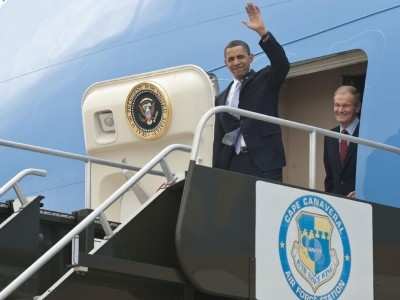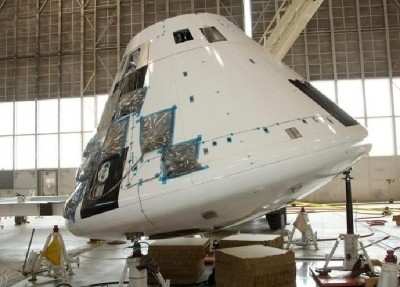But Most Know Little About Proposed Policy Changes
President Barack Obama's pledge to continue space exploration,
including increased funding to explore the solar system with the
ultimate goal of landing astronauts on Mars, has the support of
many Americans, a new poll finds.

Most Americans have a positive image of NASA, the country's
space agency, and one-third say it's very important to them that
the U.S. continue to explore the solar system (with one-third more
saying it's somewhat important to them).
Their reasons? Protection of the planet, according to the
national scientific survey's findings. Among those who think it's
important to explore space, 63 percent cited protecting the Earth
from collisions with comets and asteroids, and 57 percent said
understanding climate change were important reasons for the U.S. to
continue exploring space. Not on many people's list ... finding
extraterrestrial life, which was cited by only 18 percent.
Those are some of the findings from an independent "space poll,"
a survey of 1,200 randomly-selected adults fielded nationwide
between Mar. 27 and Apr. 12, just before President Obama's speech
on space policy last Thursday. The poll's findings have a maximum
margin of sampling error of plus or minus 3.7 percentage points,
and included both landline and cellular telephone numbers.

The Everett Group, an opinion and market research company
headquartered near Washington, DC, found that, in the days before
Obama's speech, many Americans were not familiar with the proposed
changes in space policy. Two-thirds said they were either slightly
or not at all familiar, while only one in 10 said they were very
familiar with the issue.
Obama's Kennedy Space Center speech in Florida came on the heels
of bipartisan concern about jobs and national status that would be
lost if NASA's "Constellation" program were to be scrapped.
Americans' main concerns about proposed changes in NASA's direction
included job losses and threats to national security (both at 54
percent), but even more (63 percent) had major concern the changes
would cause a loss of inspiration for America's youth to study
science and math, according to the poll.
Obama's space policy counts on "commercial space entrepreneurs"
to be able eventually to launch humans into Earth orbit - a feat
one-third of Americans think already is being done today.
Government spending continues to be an issue for many.
"Americans are split right down the middle on which should be a
bigger priority for the government -- reducing the deficit or
maintaining America's space leadership," said Steve Everett,
Principal of The Everett Group. "Forty-five percent said cut
spending on the space program to reduce the deficit, while 47
percent said increase the space budget to maintain U.S.
leadership.
 In a related development, David Thompson, the president of the
American Institute of Aeronautics and Astronautics (AIAA) praised
what he called President Obama's vision and support for
future space endeavors.
In a related development, David Thompson, the president of the
American Institute of Aeronautics and Astronautics (AIAA) praised
what he called President Obama's vision and support for
future space endeavors.
"President Barack Obama delivered an inspiring speech yesterday
(Thursday) at the Kennedy Space Center, laying out a comprehensive
vision for the U.S. space program," Thompson said in a statement.
"As with President Kennedy's speech in 1961, President Obama set
out goals that will test our ability to advance technology, field
revolutionary new systems, and sustain commitment over many years,
ensuring the United States will maintain its leadership role in
space in the 21st century as we were in the 20th. And, as was the
case fifty years ago, now it is up to the community of aerospace
professionals to move us along that path and realize the
goals."
 NTSB Prelim: Piper PA-23
NTSB Prelim: Piper PA-23 Classic Aero-TV: One Mans Vietnam
Classic Aero-TV: One Mans Vietnam NTSB Final Report: Capella Aircraft Corp FW1C50
NTSB Final Report: Capella Aircraft Corp FW1C50 Classic Aero-TV: Timber Tiger Touts Curtiss Jenny Replicas
Classic Aero-TV: Timber Tiger Touts Curtiss Jenny Replicas ANN's Daily Aero-Term (07.04.25): Performance-Based Navigation (PBN) [ICAO]
ANN's Daily Aero-Term (07.04.25): Performance-Based Navigation (PBN) [ICAO]





